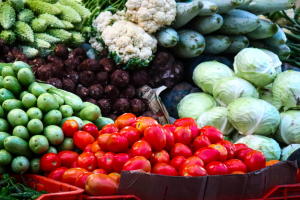Accessing and affording healthy food is a challenge for many Americans. In collaboration with World Central Kitchen, the Council provides domestic policy recommendations.
Today, soaring costs of living and spiraling inflation have made accessing and affording healthy food a challenge for many Americans. In June 2022, the Chicago Council on Global Affairs partnered with World Central Kitchen and Auburn University’s Hunger Solutions Institute to conduct listening sessions in three locations across the country to inform policy recommendations for the 2022 White House Conference on Hunger, Nutrition, and Health. The sessions focused on learning directly from individuals with lived experiences of hunger and food insecurity to explicitly center and prioritize their voices and perspectives in policy conversations.
This brief presents key learnings from the listening sessions and connects them with seven actionable policy recommendations. These recommendations include:
- Addressing root causes of hunger
- Better coordinating federal resources
- Reducing barriers to federal assistance
- Adding federal benefits to address current challenges
- Increasing affordability and availability of fresh fruits and vegetables
- Improving food recovery
- Supporting communities with targeted food assistance
Underlying all of these recommendations is the understanding that hunger, nutrition, and health issues are deeply intertwined with several key environmental and social determinants—including but not limited to poverty, structural racism, housing, healthcare, economic security, education, and transportation—that help drive significant disparities in individuals’, families’, and communities’ experiences of food insecurity, nutrition, and diet-related diseases.




